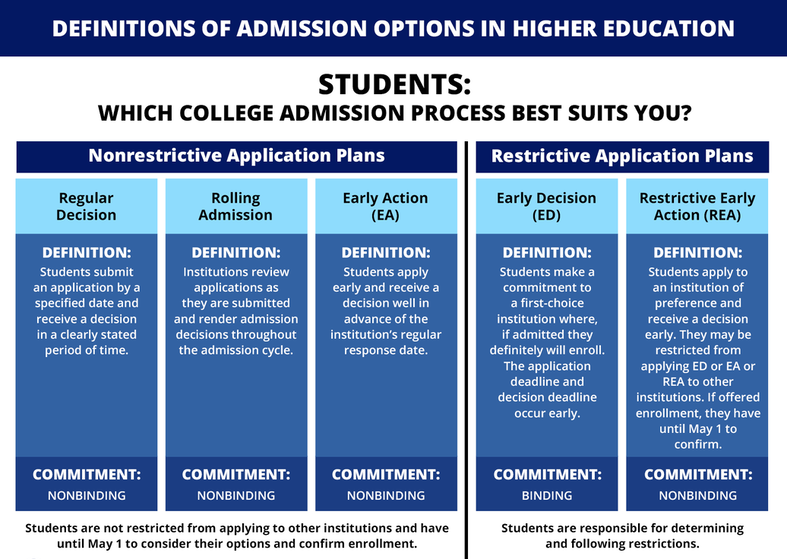
Carly Altman | Head Editor
September 13, 2024
In addition to the start of their final year of high school, seniors have a significant supplemental burden on their shoulders: college applications. Between writing countless essays, creating an impressive resume of extracurriculars, staying on top of school work, and simply maintaining mental and physical health, these next few months are often an extremely stressful period for the senior class. As the deadlines begin to approach, many students feel somewhat overwhelmed or intimidated by the extensive process of completing their applications. However, by staying organized and understanding each step along the way, applying for college will become a far less daunting task.
Creating Your College List
The first step, and arguably one of the most important, in beginning your college applications is developing a reasonable college list. While it may be tempting to only apply to top universities, it is strongly advised to consider a range of schools. In order to create a balanced college list, it is generally recommended to divide your applications into subsections of 25% safety schools, 50% target schools, and 25% reach schools. For example, if you intend to apply to 8 schools, a balanced list would consist of 2 safety schools, 4 target schools, and 2 reach schools.
Further, it is crucial to holistically consider each school that you are looking into. Factors such as academic reputation, location, access to opportunities (internships, travel abroad programs, etc.), campus life, and cost of attendance are all extremely important to think about. It is essential to ensure that you can genuinely envision yourself attending each of the schools that you place on your list. Once you have created your personal list of universities, you are prepared to begin the application process.
Letters of Recommendation
While California State Universities (CSUs) and University of California schools (UCs) do not accept letters of recommendation, many out-of-state and private universities either require or highly recommend them. These letters are generally expected to come from a teacher or academic counselor, but some universities also accept letters of recommendation from other outside sources.
It is vital to select an individual who you feel that you have developed a strong relationship with and believe will speak highly of you and your achievements. Additionally, you should plan to ask for your letter far in advance of your application deadline. This will ensure that your letter-writer has a sufficient amount of time to compose a thoughtful, well-written recommendation. Following your application, don’t forget to thank them for taking the time to write a letter for you.
Essays
The essay portion of your application is the best place to fully express yourself and your character to the universities you are applying to. Each school has different requirements when it comes to essays: many utilize the Common App essay prompts, the UCs have their own personal insight questions, and most competitive universities have supplemental essays that specifically pertain to their school. Generally ranging from 250-650 words, these essays allow you to display and expand upon your unique qualities in a concise manner.
College essays are one of the most time-consuming aspects of college applications. The most important thing to avoid is procrastination. “I try to put a little bit of time into my college essays every day,” explained senior Isabella Noble. “This helps me break up the writing process and really focus on making my essays stand out.” In order to put your best work forward, refrain from leaving your essays until the last minute. Provide yourself with an adequate amount of time to plan, write, and edit each of your essays to make them the best they can be.
Extracurriculars/Awards
Beyond your academic achievements, your extracurricular activities and awards are an important aspect of your application. UCs permit applicants to list 20 extracurriculars and awards while the Common App separates them into two sections, allowing for ten extracurriculars and five awards or honors.
Consider the activities you have participated in since you began high school: volunteering, work experience, sports, and clubs are all great examples of extracurriculars. Make sure to note any leadership positions you have held and to detail your responsibilities in the activity description. If you have received any academic or nonacademic recognitions, be sure to include them in your application. This section of your application further differentiates you as an applicant and displays what makes you a unique candidate for admission.
Standardized Tests
As of this school year, most universities have chosen to uphold a test-optional policy. This indicates that SAT or ACT scores are not required for admission at most universities, with the exception of some competitive schools that have opted to reinstate standardized testing. Conversely, some universities, such as the UCs, are entirely test-blind, meaning they do not consider standardized tests at all.
When deciding if you should submit your test scores, look into each university’s average SAT and ACT scores. These can be found on either the school’s general website or within their Common Data Set. If you fall within or above the middle 50% score, you should opt to submit your score. Otherwise, you may want to consider applying test-optional as your score is unlikely to benefit your application.
If you have yet to take either test, there are still several testing dates available that fall before application deadlines. The SAT will be offered on October 5th and November 2nd, while the ACT will be offered on October 26th.
Deadlines

There are three main deadlines when it comes to college applications: regular decision, early action, and early decision. Early action and early decision both provide you with your admission decision at an earlier date, but the latter binds you to attend if you are admitted. The general deadlines are as follows:
Regular Decision: Around January 2025
Early Action: October/November 2024
Early Decision: October/November 2024
Additionally, the UC system has its own separate application that is due on December 2nd, 2024. It is crucial to keep track of these deadlines and identify which decision round is right for you.
Overall, the best way to tackle your college applications is to have a plan and ensure your applications reflect what makes you a unique individual. “The most important thing is to be organized,” explained senior Adelyn Haderlie. “By planning and avoiding procrastination, you will set yourself up for success.” Although the fall is certainly a challenging time for seniors, your hard work, effort, and discipline will ultimately be rewarded.

Leave a Reply